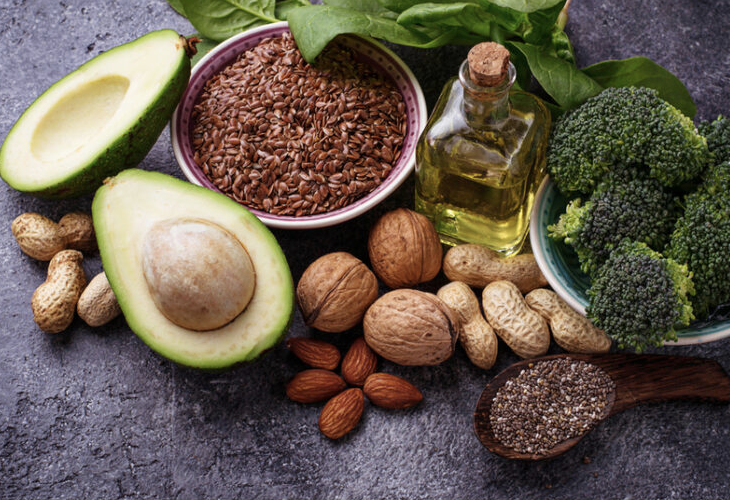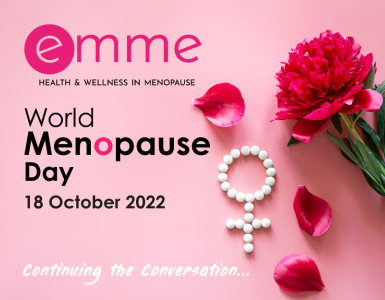By Sue Bedford MSc (Nut.Th), BSc (Hons), PGCE, mBANT, CNHC
Menopause is when a woman stops having periods and is no longer able to get pregnant naturally
The menopause is a natural part of ageing that usually occurs between 45 and 55 years of age, as a woman’s oestrogen levels decline.’
The menopause is viewed differently by different cultures. The west has often taken a negative view to the menopause and as a result it has not been spoken about openly. Recently, things are starting to change, and it is slowly becoming less of a ‘taboo’ subject, figures like Hillary Clinton, Meryl Streep, and Oprah Winfrey have helped pave this path. When women from indigenous cultures cross into menopause, they often become known as “wise women” or spiritual leaders and hold a place of respect in their communities.
It is important to look after yourself and the time before the menopause – known as the perimenopause is a good time to start
How we respond to the menopause will depend on how balanced our hormones are going into it. We wouldn’t go into any other important event in our lives unprepared, as we almost certainly would not perform at our best, so why be unprepared going into the menopause? The most important thing is to understand what is happening to our bodies and promote a healthy response to these changes.
I am often asked the question ‘But, how do I know when I am going through the peri-menopause/menopause?’
Apart from experiencing some of the classic symptoms such as hot flushes, mood swings, night sweats, sleep disturbances, forgetfulness (to name a few), there are a couple of hormone tests that can be carried out to get a more accurate picture of where your body is currently at. This then allows you to adapt your diet and lifestyle accordingly.
As a first step, it is important to balance blood sugar levels
The reason behind this is that an imbalance can have a direct effect on hormones which can lead to irritability, depression and mood swings (these may not be due to the menopause).
A useful benefit is that this will help to reduce weight gain which can be a problem for many women when going through the menopause. You can also address the issues of weight-gain by considering the type of food that you eat and the times of day at which you eat.
One recommendation is to consider the Glycemic Load (GL) of your diet and try to eliminate refined carbohydrates wherever possible
GL is linked to the bodies’ natural metabolism where blood glucose levels increase and decrease when you consume carbohydrates and depends on both the quantity and quality of carbohydrates consumed. By multiplying the value of the food in terms of its Glycemic Index (the quality of the carbohydrate), by the amount of carbohydrate a specific serving of food contains and then dividing by 100, we can calculate a value that allows us to compare the blood sugar response of different foods.
In addition to fluctuating weight, the menopause can be linked to osteoporosis or weakening of the bodies’ bones, due to loss of bone density
I will discuss this aspect in more depth in another article but for now it is useful to consider some of the key nutrients that support transition through the menopause.
- Calcium – important for bone health and density.
- Magnesium – converts vitamin D to its active form so that calcium can be absorbed (bone health).
- Vitamin C – very important for skin health and immunity.
- Vitamin D – crucial for calcium absorption (bone health). If not enough vitamin D in the body it has implications regarding diabetes, heart disease, autoimmune disease, fertility and musculoskeletal pain.
- Omega 3 fatty acids – the body cannot synthesise these so they need to be consumed through our diet but there is huge problem in the West with the imbalance of the ratio of omega 3:omega 6 fatty acids with many people now being deficient (more to come in another article on this). An omega 3:6 test is another test that I would recommend regarding the menopause.
- Zinc – helps to support the immune system and is also critical in the synthesis and balancing of hormones.
- B vitamins – help to improve energy levels, reduce stress and homocysteine levels (high homocysteine levels have been linked to a higher risk of hip fractures).
- Vitamin K -important for bone formation and health.
In addition to diet, our lifestyle is a key component in shaping our ability to adapt to the changes in our body and there are several areas where positive benefits can be gained
- Exercise
- Stress reduction (where possible!)
- Sufficient good quality sleep
Suffice to say, we will look at these factors including Glycemic Load in more depth in a further article.
















